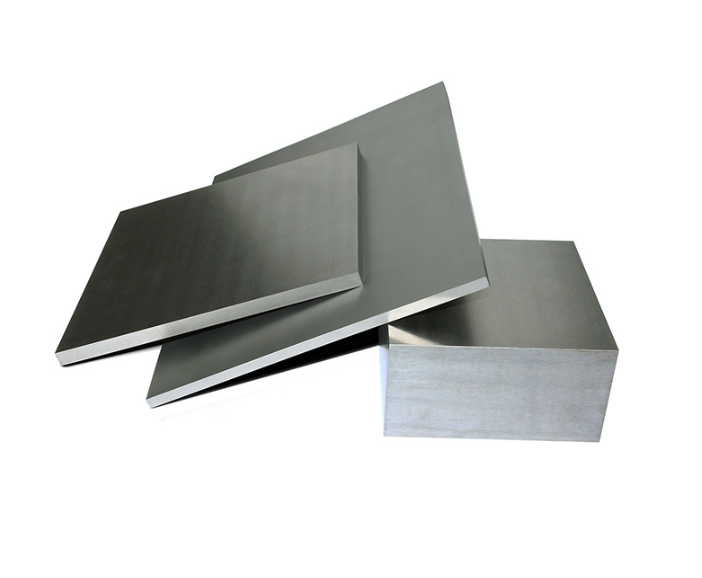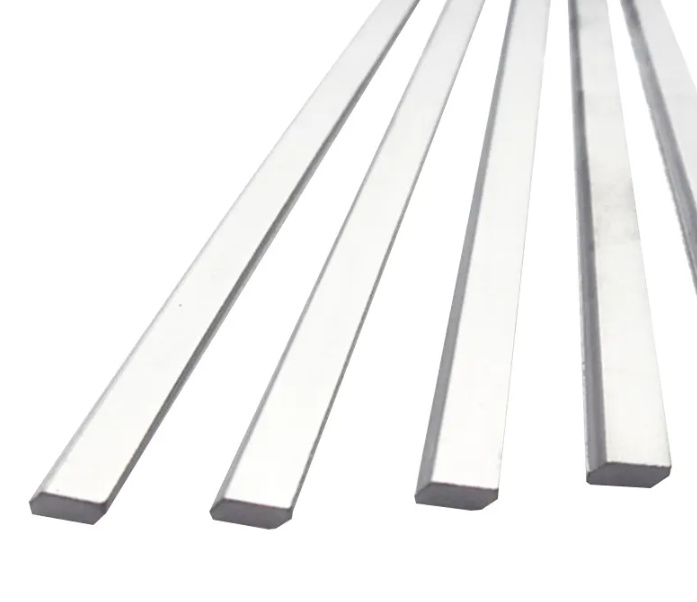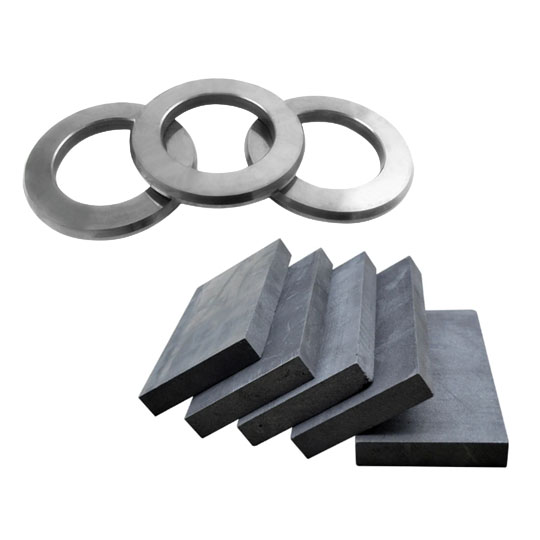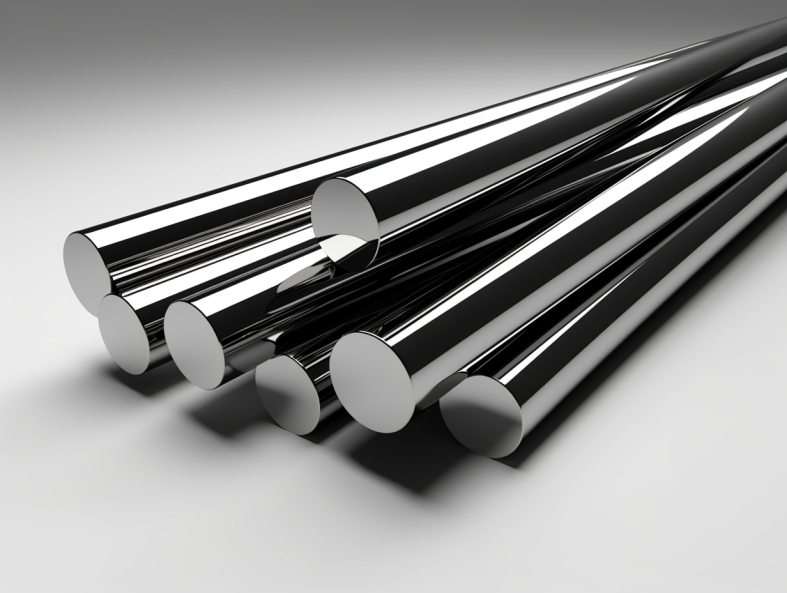소개
카바이드 스트립은 뛰어난 경도, 내마모성 및 내구성으로 인해 다양한 산업 분야에서 없어서는 안 될 필수 요소입니다. 그러나 성능과 수명은 재료 특성에만 의존하는 것이 아니라 형상과 디자인에도 큰 영향을 받습니다. 이 블로그에서는 카바이드 스트립의 다양한 형상과 디자인 특징이 성능과 내구성에 어떤 영향을 미치는지 자세히 살펴봅니다. 이러한 요소를 이해하면 작업에서 카바이드 스트립의 사용을 최적화하기 위한 정보에 입각한 결정을 내릴 수 있습니다.

카바이드 스트립에서 기하학적 구조의 중요성
1. 가장자리 지오메트리
속성:
- 선명도: 절단 효율을 결정합니다.
- 힘: 칩핑 및 파손에 대한 내성에 영향을 미칩니다.
- 내마모성: 스트립의 수명에 영향을 줍니다.
영향력: 카바이드 스트립의 가장자리 형상은 절단, 긁기 또는 성형과 관련된 응용 분야에서 매우 중요합니다. 가장자리가 날카로울수록 더 깔끔한 절단과 높은 정밀도를 제공하며, 이는 기계 가공 및 목공과 같은 작업에 필수적입니다. 하지만 모서리가 날카로울수록 칩핑이 발생하기 쉽고 더 빨리 마모될 수 있습니다. 반대로 모서리가 둥글면 내구성과 강도가 높아져 내충격성이 중요한 고강도 작업에 적합합니다.
2. 두께 및 너비
속성:
- 강성: 두꺼운 스트립은 더 많은 지지력과 안정성을 제공합니다.
- 유연성: 더 얇은 스트립은 더 복잡한 모양과 표면에 적응할 수 있습니다.
- 열 방출: 더 넓은 스트립은 열을 더 효과적으로 발산할 수 있습니다.
영향력: 카바이드 스트립의 두께와 폭은 강성과 유연성에 영향을 미칩니다. 더 두껍고 넓은 스트립은 더 단단하고 변형 없이 더 높은 하중을 견딜 수 있어 고강도 애플리케이션에 이상적입니다. 반면에 더 얇은 스트립은 유연성이 뛰어나 복잡한 모양과 세밀한 디테일이 필요한 애플리케이션에 유용합니다. 또한 스트립이 넓을수록 열 방출이 우수하여 고속 작업 시 열로 인한 손상 위험이 줄어듭니다.
3. 길이
속성:
- 적용 범위: 스트립이 길수록 더 넓은 면적을 커버하므로 자주 교체할 필요가 줄어듭니다.
- 지원: 스트립이 길면 대형 구성 요소를 더 잘 지지할 수 있습니다.
영향력: 카바이드 스트립의 길이에 따라 적용 범위와 지지력이 결정됩니다. 스트립이 길수록 더 넓은 면적을 커버할 수 있으므로 밀링이나 대패질과 같이 광범위한 표면 접촉이 필요한 작업에서 유리합니다. 그러나 스트립이 길면 특히 좁은 공간에서 다루고 설치하기가 더 어려울 수 있습니다.
4. 표면 마감
속성:
- 부드러움: 마찰 및 마모율에 영향을 줍니다.
- 코팅 호환성: 스트립이 보호 코팅을 얼마나 잘 고정할 수 있는지 결정합니다.
영향력: 카바이드 스트립의 표면 마감은 성능에 중요한 역할을 합니다. 표면이 매끄러우면 마찰이 줄어들어 절단 효율이 향상되고 마모가 감소할 수 있습니다. 또한 표면이 잘 마감되면 보호 코팅이 더 잘 부착되어 마모와 부식에 대한 저항력을 높여 스트립의 수명을 더욱 연장할 수 있습니다.
디자인 기능 및 그 효과
1. 모서리 모따기
속성:
- 잔해물 정리: 칩과 이물질을 쉽게 제거할 수 있습니다.
- 손상 방지: 엣지 칩핑의 위험을 줄입니다.
영향력: 카바이드 스트립의 모서리 모따기는 이물질 제거를 용이하게 하고 모서리 손상 위험을 줄여 성능을 개선하도록 설계되었습니다. 이 설계 기능은 막힘을 방지하고 원활한 작동을 보장하기 위해 효율적인 칩 제거가 중요한 밀링 및 드릴링과 같은 응용 분야에서 특히 유용합니다.
2. 강화 모서리
속성:
- 힘: 취약한 지점에서 파손에 대한 저항력을 높입니다.
- 내구성: 전반적인 수명을 향상시킵니다.
영향력: 강화 모서리는 카바이드 스트립의 가장 취약한 부분에 추가적인 강도를 제공합니다. 이 디자인은 모서리가 부러지거나 부서지기 쉬운 광산이나 중장비와 같이 충격이나 응력이 큰 분야에 매우 중요합니다.
3. 홈이 있거나 톱니모양인 모서리
속성:
- 그립: 스트립의 재료 그립력을 향상시킵니다.
- 절단 효율성: 스트립의 절단 능력을 향상시킵니다.
영향력: 홈이 있거나 톱니 모양의 모서리는 특정 용도에서 카바이드 스트립의 성능을 크게 향상시킬 수 있습니다. 이러한 디자인 특징은 재료에 대한 스트립의 그립력을 향상시켜 톱질이나 연마재 절단과 같은 작업에 이상적입니다. 톱니 모양은 추가 절단 지점을 제공하여 효율성을 높이고 절단에 필요한 힘을 줄여줍니다.
4. 테이퍼드 디자인
속성:
- 정밀도: 보다 정밀한 제어와 커팅이 가능합니다.
- 유연성: 다양한 모양과 각도에 더 잘 적응할 수 있습니다.
영향력: 카바이드 스트립의 테이퍼 디자인은 섬세한 작업과 복잡한 절단 작업에 필수적인 제어력과 정밀도를 향상시킵니다. 이 디자인은 스트립이 다양한 모양과 각도에 더 쉽게 적응할 수 있도록 하여 미세 목공에서 정밀 가공에 이르기까지 다양한 응용 분야에 다용도로 사용할 수 있습니다.
5. 다층 구조
속성:
- 힘: 전반적인 구조적 무결성을 향상시킵니다.
- 내마모성: 여러 겹의 마모 방지 기능을 제공합니다.
영향력: 카바이드 스트립의 다층 구조는 뛰어난 성능과 내구성을 제공할 수 있습니다. 각 레이어는 강도, 내마모성 또는 열 안정성 증가와 같은 특정 이점을 제공하도록 설계할 수 있습니다. 이 설계는 단일 레이어 스트립이 너무 빨리 마모될 수 있는 고마모 애플리케이션에서 특히 유리합니다.
디자인 특징 비교 분석
다양한 설계 특징이 카바이드 스트립의 성능과 내구성에 미치는 영향을 더 잘 이해하기 위해 주요 특성을 표 형식으로 비교해 보겠습니다.
| 디자인 기능 | 주요 속성 | 주요 혜택 | 일반적인 애플리케이션 |
|---|---|---|---|
| 모서리 모서리 | 파편 제거, 손상 방지 | 가장자리 칩핑 감소, 칩 제거 용이 | 밀링, 드릴링 |
| 강화 모서리 | 강도, 내구성 | 파손에 대한 저항력 증가, 수명 향상 | 광업, 중장비 |
| 홈/톱니형 모서리 | 그립감, 절단 효율성 | 그립감 향상, 절단 능력 향상 | 톱질, 연마재 절단 |
| 테이퍼드 디자인 | 정확성, 유연성 | 정밀한 제어 기능 제공, 다양한 형태에 적응 | 고급 목공, 정밀 가공 |
| 다층 구조 | 강도, 내마모성 | 구조적 무결성 향상, 마모 방지 기능 제공 | 마모가 심한 애플리케이션, 고강도 작업 |
카바이드 스트립 설계의 혁신
카바이드 스트립 설계 분야는 성능과 내구성 향상을 목표로 하는 새로운 혁신을 통해 지속적으로 발전하고 있습니다. 최근의 몇 가지 발전은 다음과 같습니다:
- 고급 코팅 기술: 내마모성을 개선하고 마찰을 줄이기 위해 다이아몬드 유사 탄소(DLC) 및 질화 티타늄(TiN) 등의 코팅을 개발했습니다.
- 하이브리드 디자인: 다양한 형상과 디자인 기능을 결합하여 특정 용도에 맞는 맞춤형 속성을 가진 카바이드 스트립을 만듭니다.
- 스마트 재료: 센서와 스마트 소재를 통합하여 카바이드 스트립의 상태와 성능을 실시간으로 모니터링하여 예측 유지보수를 가능하게 합니다.
카바이드 스트립의 유지보수 및 관리
카바이드 스트립의 수명과 최적의 성능을 보장하려면 적절한 유지 관리와 관리가 필수적입니다. 다음은 몇 가지 팁입니다:
- 정기 검사: 카바이드 스트립의 마모, 손상 또는 칩핑 징후가 있는지 주기적으로 검사하세요. 조기에 발견하면 추가 열화를 방지할 수 있습니다.
- 청소: 카바이드 스트립을 깨끗하게 유지하여 성능에 영향을 줄 수 있는 이물질과 오염 물질이 쌓이는 것을 방지하세요.
- 샤프닝: 정밀도와 효율성을 유지하기 위해 정기적으로 절삭날을 연마하세요. 카바이드가 손상되지 않도록 적절한 연마 도구와 기술을 사용하세요.
- 적절한 보관: 카바이드 스트립은 부식과 물리적 손상을 방지하기 위해 건조하고 서늘한 곳에 보관하세요. 가능하면 보호 커버나 케이스를 사용하세요.
자주 묻는 질문
Q1: 카바이드 스트립의 가장자리 형상이 성능에 어떤 영향을 미칩니까?
A1: 카바이드 스트립의 가장자리 형상은 절삭 효율, 내구성 및 칩핑 저항성에 직접적인 영향을 미칩니다. 가장자리가 날카로울수록 깔끔한 절단과 높은 정밀도를 제공하지만 칩핑이 발생하기 쉽습니다. 모서리가 둥글면 내구성과 강도가 높아져 고강도 작업에 적합합니다.
Q2: 카바이드 스트립의 두께와 폭이 중요한 이유는 무엇인가요?
A2: 두께와 너비에 따라 스트립의 강성, 유연성 및 열 방출이 결정됩니다. 더 두껍고 넓은 스트립은 더 단단하고 더 높은 하중을 견딜 수 있어 무거운 작업에 이상적입니다. 더 얇은 스트립은 복잡한 모양에 더 많은 유연성을 제공하며, 더 넓은 스트립은 열을 더 효과적으로 방출하여 열 손상의 위험을 줄입니다.
Q3: 카바이드 스트립에서 모따기 모서리는 어떤 이점을 제공합니까?
A3: 모서리가 모따기 처리되어 이물질 제거가 용이하고 모서리 칩핑의 위험이 줄어듭니다. 이 설계 기능은 막힘을 방지하고 원활한 작동을 보장하기 위해 효율적인 칩 제거가 중요한 밀링 및 드릴링과 같은 애플리케이션에 유용합니다.
Q4: 다층 구조는 카바이드 스트립의 성능을 어떻게 향상시키나요?
A4: 다층 구조는 전반적인 구조적 무결성을 향상시키고 여러 층의 마모 보호 기능을 제공합니다. 각 레이어는 강도, 내마모성 또는 열 안정성 향상과 같은 특정 이점을 제공하도록 설계할 수 있으므로 마모가 심하고 사용량이 많은 애플리케이션에 이상적입니다.
Q5: 카바이드 스트립 설계의 최근 혁신에는 어떤 것이 있나요?
A5: 최근 혁신에는 내마모성을 개선하기 위한 다이아몬드 유사 탄소(DLC) 및 티타늄 질화물(TiN) 같은 첨단 코팅 기술, 다양한 형상과 기능을 결합한 하이브리드 설계, 예측 유지보수를 위해 실시간으로 성능을 모니터링하는 스마트 소재와 센서의 통합 등이 있습니다.
카바이드 스트립을 좋은 가격에 구매하고 싶으신가요? 클릭하세요 여기.




